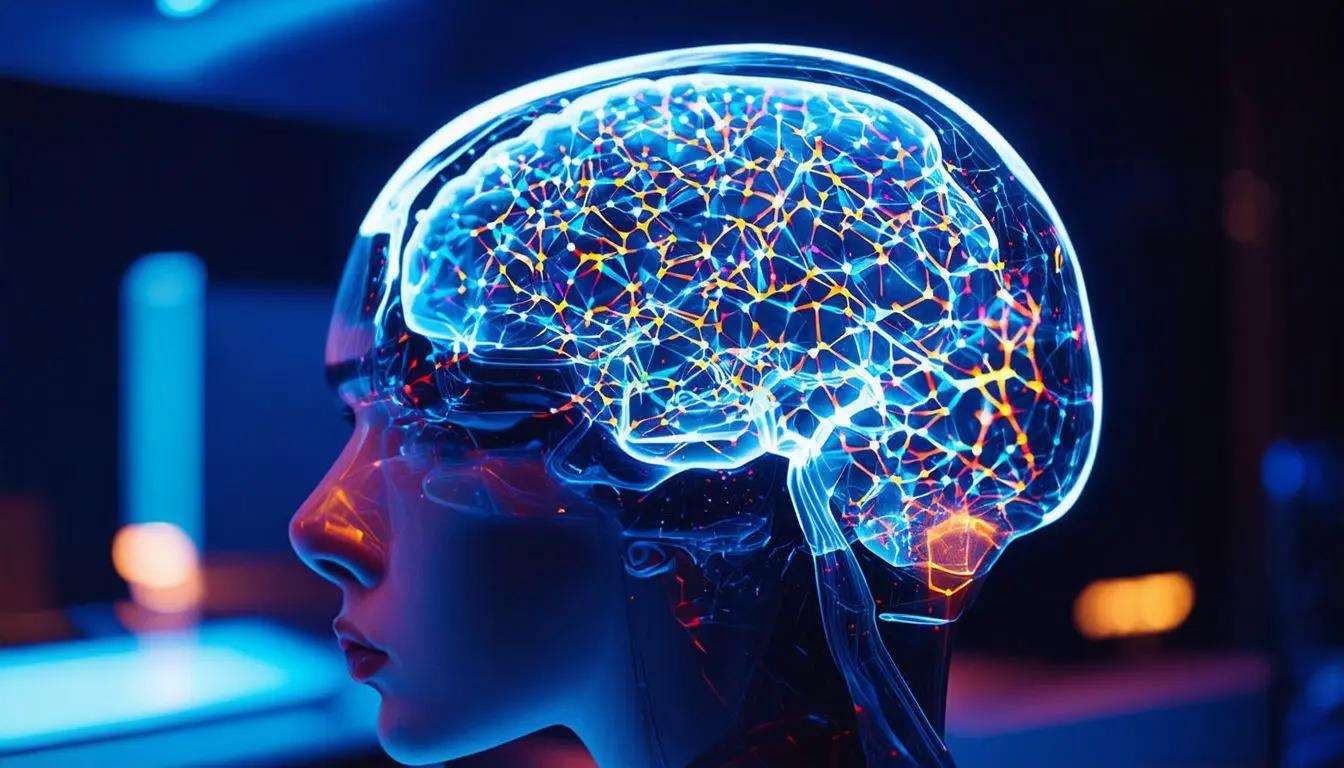June 24, 2024|10 min reading
Artificial Intelligence in Healthcare: Revolutionizing Medical Practices

Artificial intelligence (AI) has become a transformative force in various industries, and healthcare is no exception. With its ability to process vast amounts of data, make predictions, and even perform certain tasks autonomously, AI is poised to revolutionize how we approach medicine. However, while AI brings numerous benefits, it also presents significant challenges that must be addressed to harness its full potential.
Introduction
The integration of artificial intelligence in healthcare is not just a futuristic concept but a present-day reality that continues to evolve. This article delves into the multifaceted impact of AI on healthcare, exploring its benefits, challenges, and future potential.
What is Artificial Intelligence?
Artificial intelligence refers to the simulation of human intelligence processes by machines, especially computer systems. These processes include learning (the acquisition of information and rules for using the information), reasoning (using rules to reach approximate or definite conclusions), and self-correction.
Evolution of AI in Medicine
The journey of AI in medicine began in the 1950s with rudimentary systems that performed basic tasks. Over the decades, AI has evolved into sophisticated systems capable of handling complex medical diagnostics and treatment planning.
Key Benefits of AI in Healthcare
Enhanced Diagnostic Accuracy
AI systems can analyze medical data with unparalleled precision, leading to more accurate diagnoses. For instance, AI algorithms can detect anomalies in medical images that might be missed by the human eye, ensuring early detection of diseases like cancer.
Streamlining Administrative Tasks
AI can automate routine administrative tasks, such as scheduling appointments and managing patient records. This not only reduces the burden on healthcare staff but also minimizes errors and increases efficiency.
Personalized Treatment Plans
With the ability to analyze a patient's genetic information, lifestyle, and other factors, AI can help in creating personalized treatment plans. This tailored approach ensures that patients receive the most effective treatments for their specific conditions.
AI in Medical Imaging
Medical imaging has been one of the primary beneficiaries of AI technology. AI systems can enhance the quality of images, assist in interpreting results, and even identify patterns that could indicate the presence of diseases.
AI in Surgery
Robotic Assistance
Robotic surgery is one of the most promising applications of AI in healthcare. Robots can perform delicate and complex procedures with a level of precision that surpasses human capabilities. These robotic systems are guided by AI algorithms that ensure accuracy and minimize risks during surgeries.
AI in Drug Design and Development
Predictive Algorithms
AI has significantly accelerated the process of drug discovery and development. Predictive algorithms can analyze vast datasets to identify potential drug candidates, predict their effects, and optimize the development process, reducing time and costs.
AI in Patient Monitoring
Wearable Technology
Wearable devices equipped with AI technology can monitor patients' vital signs in real-time. These devices can alert healthcare providers to any irregularities, allowing for timely intervention and better management of chronic conditions.
Telemedicine and AI
Remote Consultations
AI has made telemedicine more efficient by facilitating remote consultations. AI-powered platforms can analyze patient data, provide preliminary diagnoses, and recommend treatment options, making healthcare accessible to those in remote areas.
AI in Mental Health
Online Therapy
AI has found applications in mental health through online therapy platforms. These platforms use AI to provide personalized therapy sessions, track progress, and offer support, making mental health care more accessible and affordable.
Challenges and Risks of AI in Healthcare
While AI holds great promise, its implementation in healthcare is fraught with challenges that must be addressed to ensure its effectiveness and safety.
Data Privacy and Security
The use of AI in healthcare involves handling sensitive patient data, raising concerns about privacy and security. Ensuring that this data is protected from breaches is paramount to maintaining patient trust and complying with regulations.
Ethical Concerns
AI systems can make decisions that impact patient care, raising ethical questions about accountability and transparency. It is essential to establish guidelines and oversight to ensure that AI operates within ethical boundaries.
Clinical Implementation Hurdles
Integrating AI into clinical practice requires significant changes in workflow and training for healthcare professionals. Overcoming these hurdles is crucial for the successful adoption of AI technologies.
Job Displacement Fears
The automation of certain tasks by AI has led to fears of job displacement among healthcare workers. While AI can enhance productivity, it is important to find a balance that preserves jobs and integrates AI as a supportive tool rather than a replacement.
Bias and Discrimination
AI systems can inadvertently perpetuate biases present in their training data, leading to discrimination in healthcare delivery. Efforts must be made to ensure that AI systems are trained on diverse and representative datasets to mitigate this risk.
Balancing AI with Human Touch
Despite the advancements in AI, the human touch remains irreplaceable in healthcare. Ensuring that AI complements rather than replaces human interaction is key to maintaining compassionate and effective patient care.
Case Studies of AI in Healthcare
Examining successful implementations of AI in healthcare provides valuable insights into its potential and challenges.
Successful Implementations
Various healthcare institutions have successfully integrated AI into their operations, demonstrating its potential to improve patient outcomes and operational efficiency.
Future of AI in Healthcare
Innovations on the Horizon
The future of AI in healthcare looks promising, with ongoing research and innovations poised to further enhance its capabilities. From advanced diagnostics to personalized medicine, AI is set to revolutionize healthcare.
Regulatory and Legal Frameworks
Developing robust regulatory and legal frameworks is essential to govern the use of AI in healthcare. These frameworks should address issues of accountability, transparency, and patient rights.
AI Education and Training for Healthcare
Training healthcare professionals to work with AI systems is crucial for their successful implementation. Educational programs should focus on equipping professionals with the skills needed to leverage AI effectively.
Public Perception and Acceptance
Gaining public trust and acceptance is critical for the widespread adoption of AI in healthcare. Transparent communication about the benefits and limitations of AI can help in building this trust.
Recommendations for Integrating AI
Best Practices
To integrate AI successfully into healthcare, it is important to follow best practices that ensure its safe and effective use. These include rigorous testing, continuous monitoring, and involving healthcare professionals in the development process.
Conclusion
Artificial intelligence holds immense potential to transform healthcare, offering numerous benefits in terms of accuracy, efficiency, and personalized care. However, it also presents significant challenges that must be addressed to realize its full potential. By balancing AI with human touch, addressing ethical concerns, and ensuring robust regulatory frameworks, we can harness the power of AI to improve healthcare outcomes for all.
FAQs
What are the key benefits of AI in healthcare?
AI offers enhanced diagnostic accuracy, streamlined administrative tasks, personalized treatment plans, and improved patient monitoring, among other benefits.
How is AI used in medical imaging?
AI enhances the quality of medical images, assists in interpreting results, and identifies patterns indicating diseases, thereby improving diagnostic accuracy.
What are the challenges of implementing AI in healthcare?
Challenges include data privacy and security concerns, ethical issues, clinical implementation hurdles, job displacement fears, and potential biases in AI systems.
Can AI replace human healthcare professionals?
While AI can perform many tasks with high efficiency and accuracy, it cannot replace the human touch, empathy, and judgment that healthcare professionals provide. AI is best used as a supportive tool to enhance human capabilities.
How does AI improve drug design and development?
AI accelerates drug discovery by using predictive algorithms to analyze data, identify potential drug candidates, and predict their effects. This reduces time and costs associated with traditional drug development methods.
What measures are needed to ensure ethical use of AI in healthcare?
Ensuring ethical use of AI involves establishing guidelines for data privacy, accountability, and transparency. It also requires continuous monitoring, rigorous testing, and involving diverse stakeholders in the development and implementation process.
Explore more

Elon Musk’s Vision: AI, Mars, and a Future of Abundance
Explore Elon Musk’s predictions on AI, Tesla’s Robotaxi plans, Starship’s Mars mission, and the role of robots in a futu...

Unlocking the Future: The Revolutionary Potential of Brain Image Reconstruction Technology
Discover how brain image reconstruction technology is pushing the boundaries of science and art by decoding thoughts int...

Can Artificial Intelligence Replace Human Intelligence?
Exploring the capabilities and limitations of AI in comparison to human intelligence.
